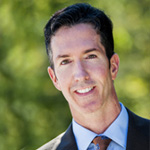Many of us are quickly approaching the one-year mark of what has become our remote reality. We’ve been communicating more often via video platforms and hosting virtual events for about 12 months, so we’re all pros at it by now, right? Perhaps not yet.
While we all hope to be able to meet with groups of clients in person soon, it may still be a while. We may also need to lean on virtual technology more if COVID cases increase again this winter. For these reasons, many financial professionals are wondering how to keep current and prospective clients better informed and engaged online in 2021.
Here are some tips that financial professionals can use to increase communication and connection in our ever more virtual world:
1. Use compelling content
Start by freshening up your topics. Think about what clients want to hear and need to be informed on, then find a partner or firm who can help provide and deliver related content. If you’re wracking your brain on what clients would want, just ask them! Survey your clients and use their feedback to create a list of interesting topics. Then, let them know if/when their suggested event is scheduled.
That type of personalization helps clients feel valued and heard. You can do the same with personalized invitations and reminders via phone or email. To tell someone you thought of them, wanted to personally invite them, and then explain why the topic’s relevant to their life can all help increase one’s interest. And remember that enthusiasm is contagious! If you don’t sound truly excited about the topic and speaker, clients will notice and RSVP accordingly.
2. Learn from the past
The initial switch to our virtual reality was challenging for most people. Many in-person, group presentations had to be changed to webinars last minute. In reflecting back, those first virtual events more than likely had problems that affected clients’ experiences. There may have been trouble muting phone lines, problems displaying visuals, connection issues, “Zoombombing”, etc. But don’t be intimidated by any prior issues you may have faced with past webinars. In fact, being open about some of those early challenges and—more importantly—letting clients know you’ve addressed them may help make past attendees more willing to attend upcoming events.
Given all the potential ways you can leverage webinar tech as a positive differentiator in your practice, it can pay to keep refining your skills. Most financial professionals are comfortable with the basics, but learning how to truly create an online experience that flows smoothly and professionally takes additional work.
Want to fine tune your abilities using your firm-approved video platform? There are plenty of training videos and often firms have internal training departments. (Hartford Funds has some great related content and workshops, too.) The key is to practice with friends and colleagues so you’re ready to wow future attendees by hosting more seamless virtual events.
3. Extend the invite
While by no means a perfect replacement, there are many benefits to holding virtual meetings over live seminars. There’s generally no cost, no need to reserve a room or equipment, and you can more easily invite speakers from around the world. You can also potentially reach a broader audience, since there’s no risk of running out of seats.
Encourage people registered for your next online event to “bring” a friend or family member. It’s a great way to have your clients’ adult kids or grandkids who may live elsewhere get to know you better. [Note: some firms require the names of any potential guests before the webinar.] Also, add some centers of influence (COIs) to your guest list and encourage them to invite people, as well. Giving a COI a little speaking time can improve the chance they’ll promote your event, and having another speaker may make the conversation more dynamic for listeners. All that said, small, intimate events can also be very effective in a virtual setting.
4. Ask for feedback
After a webinar, ask the attendees for constructive feedback and be sure to incorporate their insights when holding future events. If you get great feedback on a particular topic, consider holding another round of the same webinar for clients who missed the first one. For those who did attend, ask if there’s another group who might benefit from having that same webinar held specifically for them (e.g, faith-based groups, civic organizations, alumni groups, etc.).
As with any client experience, webinar attendees may have a lot of constructive feedback, but it’s important to ask for it the right way. Human nature is that we may ask for feedback with a question like: “What did you think of the webinar?” It’s also human nature that people generally don’t want to hurt our feelings, so may respond with: “That was good.” Consider rephrasing your request to something like: “It’s important to me that we make our webinars a great experience for our clients. What’s one thing you think would be helpful to improve our online events?” Chances are you will get much more honest and useful input this way, and it’s more likely to open up a broader conversation on what else can be improved for next time.
Hosting a seamless virtual event is, and will continue to be, a learning process for all of us. The tips outlined above can help keep current and prospective clients better engaged and informed, while refining the virtual experience. These same tips can also be adapted for use with future in-person events, as well.
As you know, people need expert help keeping world events in perspective at times like this—making your continued efforts in the virtual world all the more important.
Ryan Sullivan is a registered representative of Hartford Funds Distributors, LLC.
Check the background of this firm/individual on FINRA's BrokerCheck.





